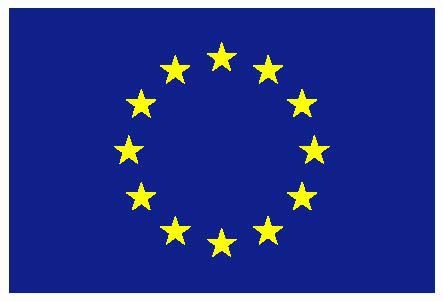Press release
Paris, 7 October 2013
The FFSU and Efus publish
Safer Drinking Scenes. Alcohol, City and Nightlife
This publication presents recommendations for improving the prevention and management of binge drinking among young people in public spaces based on the work led by the French and European Forums for Urban Security (Efus and FFSU) and ten European cities as part of the project “Safer Drinking Scenes”
The French Forum for Urban Security (FFSU) has helped French local authorities with issues related to urban security for over 20 years. For the last two years it has worked, in partnership with the European Forum for Urban Security (Efus), with 10 European cities on binge drinking among young people in public spaces in Europe. At the end of the project they published Safer Drinking Scenes. Alcohol, City in order to give an overview of the phenomenon and to provide a better understanding of the issues of public health and public security.
This publication addresses a series of issues facing local authorities, such as how can we reconcile the different ways that a city is used at night? How can we prevent and manage the effects of such uses on health, personal injury and material damage? How can public spaces be made safer and how can we promote the responsible consumption of alcohol without spoiling the party?
Co-ordinated by the French and European Forums for Urban Security, this publication particularly brings together the contributions of three European experts: Marie-Line Tovar, of the French Monitoring Centre for Drugs and Drug Addictions, Dr Laurent Karila, addictionologist at the Paul Brousse Hospital (Paris) and Phil Hadfield, researcher at Leeds University (United Kingdom), as well as the promising programmes implemented by a number of European cities.
The publication also presents political and operational recommendations intended for local authorities. The partners of the project Safer Drinking Sc are especially in favour of intervention policies based on a balance between public health and public security, between human presence on the ground, prevention and respect for the legislation. They also encourage all nightlife stakeholders, not only the health and emergency services but also groups of young people themselves and nightclub managers, to work locally in partnership.
These European cities call for linking local policies with national policies, in particular in the areas of Youth and Education, in order to raise awareness among young people of the risks of binge drinking. They also want a dialogue with the alcohol and retail sectors to discuss their participation in prevention programmes as well as their marketing strategies.
The publication is free for members of the Efus/FFSU network and can be ordered from the FFSU for 8 Euros.
Safer Drinking Scenes. Alcohol, City and Nightlife. 2013. Paris: the French Forum for Urban Security and the European Forum for Urban Security, 98 pages. Bilingual French/English edition.
////////////////////////////////////////////////////////////////////////////////
Please send an email to communication@efus.eu if you wish to receive a copy of the publication (paper or PDF)
Press Contact:
Elsa Fontanille
fontanille@efus.eu
+ 33 1 40 64 49 00
 About the project “Safer Drinking Scenes”
About the project “Safer Drinking Scenes”
For two and a half years the French Forum for Urban Security (FFSU) has, in partnership with the European Forum for Urban Security, led a European project of exchanges of knowledge and experience regarding binge drinking among young people in public spaces. The aim of the project was to help local authorities gain a better understanding of this phenomenon and to equip local stakeholders with the operational tools so that they are in a position to manage as well as prevent binge drinking. Co-financed by the European Commission, this project brought ten European cities together: Liège, Anvers (Belgium), Stuttgart (Germany), Bordeaux, Brest, La Rochelle, Nantes (France), Kingston-upon-Thames (United Kingdom), Reggio-Emilia (Italy) and Rotterdam (the Netherlands). A committee of experts also contributed to this project: Marie-Line Tovar, of the French Monitoring Centre for Drugs and Drug Addictions (OFDT), Dr Laurent Karila, addictionologist (France), Phil Hadfield, researcher at Leeds University (United Kingdom), and the Belgian Forum for Prevention and Urban Security. The project ended in August 2013.
 About the French Forum for Urban Security
About the French Forum for Urban Security
Following the founding of the European Forum, the FFSU was created in 1992. The FFSU is an association which brings together local elected representatives from across the entire political spectrum. Almost 130 French local authorities were members in 2013. As an association of local authorities, the principal objective of the FFSU is to lead a network of cities by fostering the exchange of experiences and the pooling of good practices as regards security and the prevention of crime. www.ffsu.org
 About the European Forum for Urban Security
About the European Forum for Urban Security
Founded in 1987, under the auspices of the Council of Europe, the European Forum for Urban Security (Efus, by its English acronym) is the oldest international non-governmental organisation of local authorities dedicated to urban security. Bringing together 250 local authorities in 18 countries, this network aims to strengthen crime reduction policies and to promote the role of local authorities in national and European institutions. It is run by an executive committee of 33 local authorities elected by members of the network.
 The project SDS received funding from the European Commission as part of the Programme “Preventing and Combating Crime” Isec 2009.
The project SDS received funding from the European Commission as part of the Programme “Preventing and Combating Crime” Isec 2009.
The contents of this publication are the sole responsibility of the stakeholders and are, under no circumstances, to be considered as reflecting the position of the European Union.



